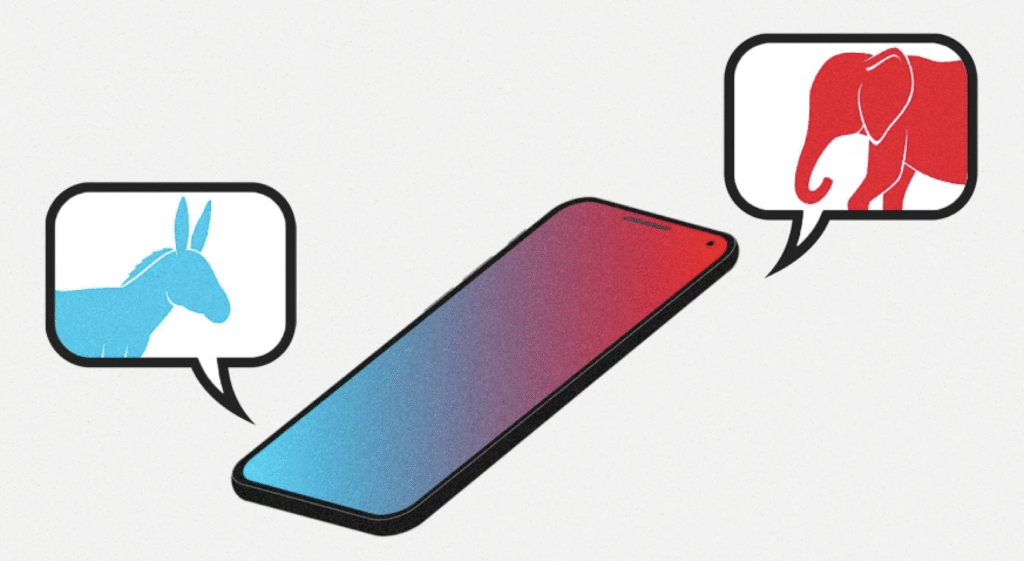If you own a cell phone, you probably know the feeling: you hear that familiar alert, glance at your screen, and find yet another text message begging for a donation before midnight. It doesn’t matter if you’ve never signed up for anything, or if you’ve opted out a dozen times already. I typically receive at least 15 or 20 per day.
What used to be a manageable annoyance during the election season has turned into a relentless year-round bombardment. I’m talking about the political text tsunami—an onslaught of campaign appeals, “urgent” fundraising pleas, and surveys masquerading as personal notes from senators and governors you’ve never heard of. This week it’s been Janet Mills, the Democratic governor of Maine running for the Senate: Twelve texts from this one candidate in the last four days!
Unlike robocalls or marketing spam, these messages are technically legal. That’s the problem. The reason you can’t stop them is that political texts are permitted. The FCC and the Federal Election Commission allow political campaigns to text potential voters if the message is sent manually. They are also exempt from the laws that govern robocalls and automated spam. Political calls are also exempted from the do not call list, a concession to our politicians needed to get the bill passed.
That means a volunteer or campaign staffer can legally send out thousands of messages one by one—and the campaign can claim it’s all “personal communication.” Because these systems use hundreds or thousands of phone numbers, even if you block or reply “STOP” to one, another will be used the next hour.
There’s no national registry for political texts like the “Do Not Call” list. And the opt-out links—when they exist—only apply to that one campaign, not to the web of affiliated groups and political action committees sharing the same donor data. Once your number gets into that ecosystem, it’s traded and sold like a commodity. There’s an option to “stop texting,” but no option to “stop renting my number.” Reporting doesn’t do much — it might help the carriers spot large campaigns. It won’t stop the next text that comes from a new number tomorrow.
Also, much of what these campaigns, PACs, and other organizations collect never goes to the candidates, in some cases as little as 10 or 20 percent. For these reasons, I rarely donate in response to text messages and don’t want my number to be sold as a donor. What’s so exasperating is when I occasionally do donate to a candidate, they’re back the next day and the day after asking for more donations. These campaigns are doing everything possible to make you not donate and dislike the candidates.
Here are a few steps we are told to do, but most of these do very little other than maybe making us feel better.
- Reply “STOP.” It sounds obvious, but it rarely works. There are so many diferent numbers used to text, you can never make a dent.
- Forward messages to 7726 (SPAM). This is a universal reporting number used by wireless carriers. Forwarding political spam helps flag offending numbers and may lead to them being shut down. That assumes your carrier cares and bothers to do anything. Clearly they do a lot more than they are doing.
- Filter unknown senders. On iPhones, go to Settings → Messages → Filter Unknown Senders. It moves all texts from numbers not in your contacts into a separate folder. Android phones have similar “Spam protection” options. While you’ll still receive these unwanted texts, you can prevent them from sounding an audible notification and more easily delete them all at the same time.
- Don’t engage with “polls” or “surveys.” Many are data-harvesting tools to confirm your number is active. Once you respond, you’re tagged as “responsive”—and you’ll get more messages. That’s another reason why texting STOP often makes matters worse.
- Avoid political petitions and online pledges. Many of those seemingly noble causes (“sign to support clean energy!”) are just list-building schemes. I’m getting both Democratic and Republican texts, even though I only made one contribution to a Republican; that was just $1 to Christie for him to get enought donations to qualify for a debate. Big mistake! I’m now paying very dearly for that donation, including a massive number from the other party.
While there are numerous apps for filtering spam calls, I’ve not yet found one that works well for text messages, but I continue to look.
The irony is that the tsunami of messages is making more of us mad and making us not want to donate, like the fable about the goose that laid the golden egg. Campaign consultants have admited that text fundraising fatigue has set in, and returns have dropped sharply. Yet the practice continues because it’s cheap, unregulated, and data-driven. There’s no letup in sight because the politicians will never vote to regulate it. And we are the goose!

